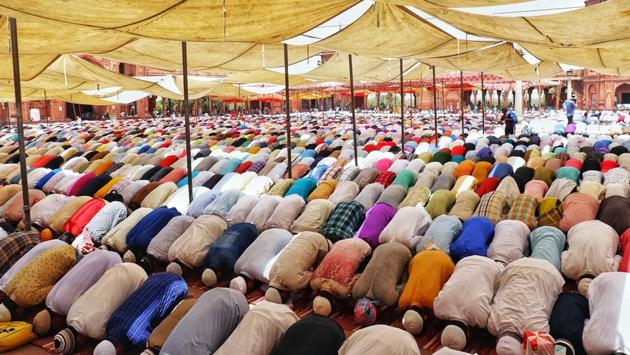Eid-e-Milad 2019: History, importance and significance of Milad-un-Nabi
Eid-e-Milad 2019: The festival is also known as Milad an-Nabi and Mawlid an-Nabi. In colloquial Arabic, the word “Mawlid” means to give birth or bear a child.
Eid-e-Milad is celebrated to commemorate the birth of Prophet Muhammad. It is believed that the Prophet was born in Mecca on the twelfth day of Rabee-ul-Awwal in 570 CE.

The day is dedicated to the Prophet and the dogmas of Islam. But, Eid-e-Milad is a day to celebrate as well as to mourn because it is also the death anniversary of the Prophet.
The festival is also known as Milad an-Nabi and Mawlid an-Nabi. In colloquial Arabic, the word “Mawlid” means to give birth or bear a child.
It is celebrated in the month of Rabi’ al-awwal, which is the third month in the Islamic calendar. While the Shias celebrate it on the 17th of the month, the Sunnis celebrate on the festival on 12th of the month, according to the Islamic calendar.
History
After Prophet Muhammad breathed his last, his house was transformed into a prayer house by one of his successors.
The celebrations of Eid-e-Milad became more popular during the 11th century and it was first celebrated as an official festival in Egypt. During this period, only Shia Muslim, who were the ruling tribe in the region could celebrate the festival and the festivities were not extended to the general public.
In the 12th century, countries other than Egypt such as Syria, Morocco, Turkey and Spain, started celebrating Eid-e-Milad. And soon, Sunni Muslims too started celebrating the day.
In ancient times, the festival was performed much differently as compared to modern times. As it was first started in the 11th century in Egypt by the leading clan, they played an important role in the celebration.
People started their day by offering prayers. After this, people from the ruling clan gave speeches and verses from the Holy Quran were recited. The festivities would culminate with a large public feast.
However, over the years practices got modified and heavy influence of some Sufi practices like animal sacrifices, public discourses, torchlight processions during nightfall and a banquet to its public, dominated the celebrations. People of the ruling clan were honoured as they were believed to be Caliphs, which were considered to be representatives of Muhammad.
Celebrations
Eid-e-Milad is celebrated to honour Prophet Muhammad who is said to have introduced Islam and then, revolutionised the religious scene in the Middle East in the following years.
People on the day of Eid-e-Milad start their day with a morning prayer followed by a procession and large gathering in mosques. Children are narrated stories of Muhammad, about his life and preachings as mentioned in the Holy Quran. The day ends with donations towards the needy and poor people. Friends and family are also invited to be a part of the festivities.
Catch your daily dose of Fashion, Health, Festivals, Travel, Relationship, Recipe and all the other Latest Lifestyle News on Hindustan Times Website and APPs.



